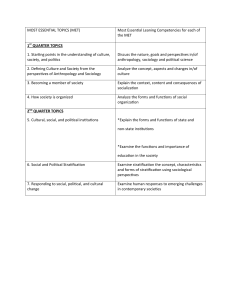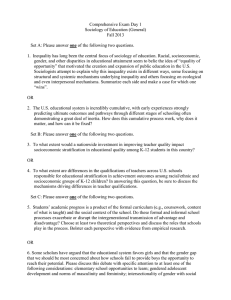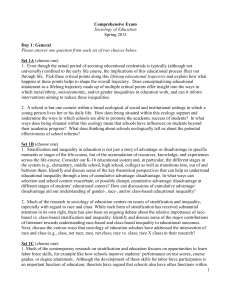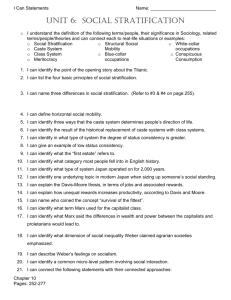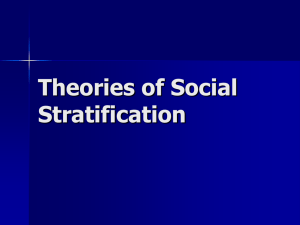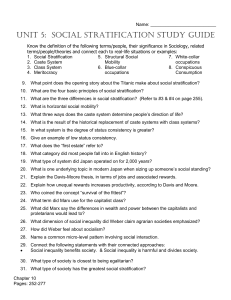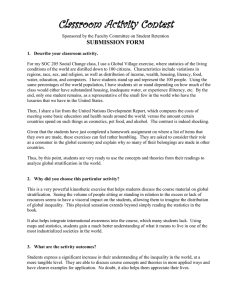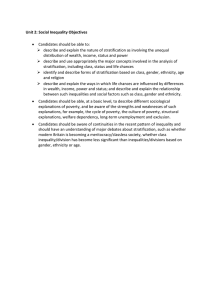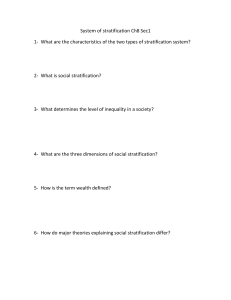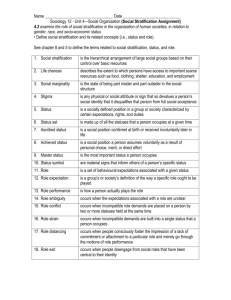Questions for comps
advertisement
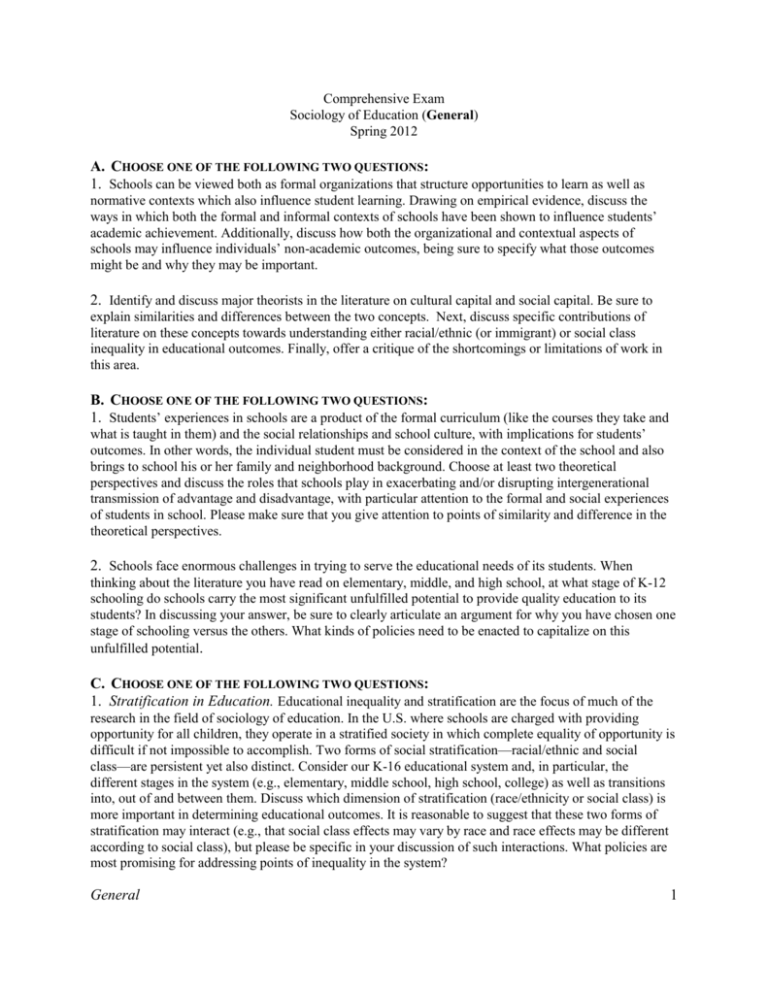
Comprehensive Exam Sociology of Education (General) Spring 2012 A. CHOOSE ONE OF THE FOLLOWING TWO QUESTIONS: 1. Schools can be viewed both as formal organizations that structure opportunities to learn as well as normative contexts which also influence student learning. Drawing on empirical evidence, discuss the ways in which both the formal and informal contexts of schools have been shown to influence students’ academic achievement. Additionally, discuss how both the organizational and contextual aspects of schools may influence individuals’ non-academic outcomes, being sure to specify what those outcomes might be and why they may be important. 2. Identify and discuss major theorists in the literature on cultural capital and social capital. Be sure to explain similarities and differences between the two concepts. Next, discuss specific contributions of literature on these concepts towards understanding either racial/ethnic (or immigrant) or social class inequality in educational outcomes. Finally, offer a critique of the shortcomings or limitations of work in this area. B. CHOOSE ONE OF THE FOLLOWING TWO QUESTIONS: 1. Students’ experiences in schools are a product of the formal curriculum (like the courses they take and what is taught in them) and the social relationships and school culture, with implications for students’ outcomes. In other words, the individual student must be considered in the context of the school and also brings to school his or her family and neighborhood background. Choose at least two theoretical perspectives and discuss the roles that schools play in exacerbating and/or disrupting intergenerational transmission of advantage and disadvantage, with particular attention to the formal and social experiences of students in school. Please make sure that you give attention to points of similarity and difference in the theoretical perspectives. 2. Schools face enormous challenges in trying to serve the educational needs of its students. When thinking about the literature you have read on elementary, middle, and high school, at what stage of K-12 schooling do schools carry the most significant unfulfilled potential to provide quality education to its students? In discussing your answer, be sure to clearly articulate an argument for why you have chosen one stage of schooling versus the others. What kinds of policies need to be enacted to capitalize on this unfulfilled potential. C. CHOOSE ONE OF THE FOLLOWING TWO QUESTIONS: 1. Stratification in Education. Educational inequality and stratification are the focus of much of the research in the field of sociology of education. In the U.S. where schools are charged with providing opportunity for all children, they operate in a stratified society in which complete equality of opportunity is difficult if not impossible to accomplish. Two forms of social stratification—racial/ethnic and social class—are persistent yet also distinct. Consider our K-16 educational system and, in particular, the different stages in the system (e.g., elementary, middle school, high school, college) as well as transitions into, out of and between them. Discuss which dimension of stratification (race/ethnicity or social class) is more important in determining educational outcomes. It is reasonable to suggest that these two forms of stratification may interact (e.g., that social class effects may vary by race and race effects may be different according to social class), but please be specific in your discussion of such interactions. What policies are most promising for addressing points of inequality in the system? General 1 2. There have been many discussions in the educational literature about how to narrow the differences between economic groups in high school graduation rates. Many studies have highlighted the complexity of this issue by pointing out the contributions of familial, educational, and individual factors. Discuss (3) theoretical perspectives that can help us understand economic variation in graduation rates. Do the three perspectives (collectively) adequately summarize why kids from some economic groups graduate at higher rates than others? If not, discuss one major component they are missing (collectively) that would enhance our understanding of this issue. General 2 Transition to Adulthood 3
